All about lawns
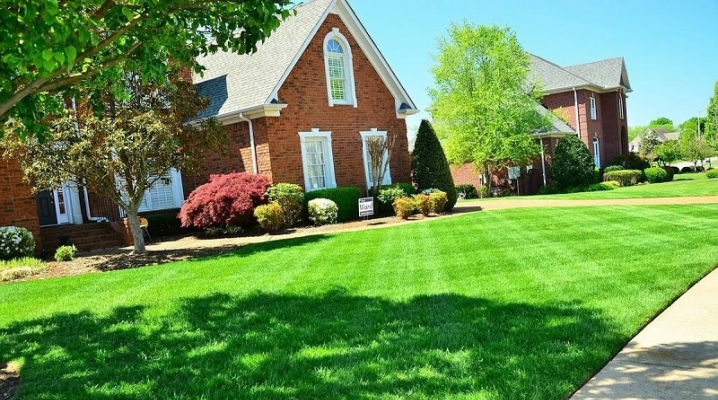
Knowing everything about lawns, what it is, is important for any owner of a suburban (and not only) site. To achieve a good result, it is necessary to study such species as universal and meadow lawns, their other types, to decide which is better to plant. But even the most beautiful decorative green lawns need careful maintenance and this topic also needs to be carefully studied.
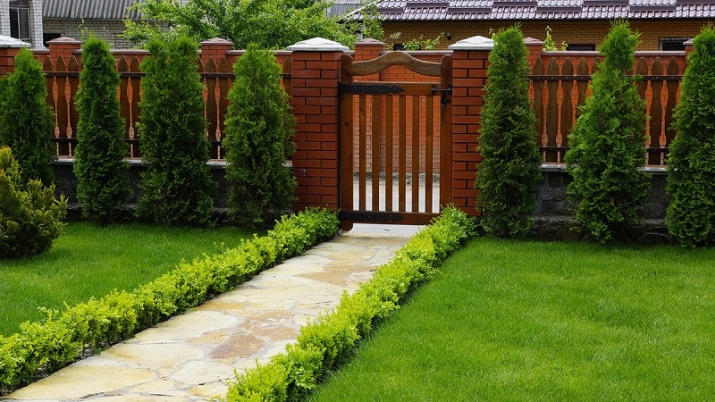
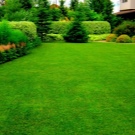
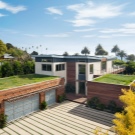
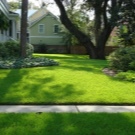
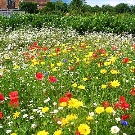
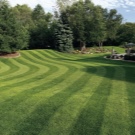
What it is?
It should be noted that the term "lawn" is used not only by gardeners, architects, designers and ordinary people. He is even mentioned in the rules of the road. But there it does not have a clear definition and refers only to the gap that separates the road from the sidewalk. In encyclopedias and dictionaries, attention is focused on such properties as a specially prepared grass cover that is cut according to a special scheme. Legal regulations in certain regions allow us to state that there may be bushes, trees and elements of the park landscape on the lawn (but this is not necessary).
As for grassy lawns, they can act as a background for decorative planting and park buildings, objects. It is these points that are stipulated in GOST 28329-89, dedicated to the landscaping of settlements.
Short-cut grass on the site became popular in Europe in the 18th century. At the beginning of the next century, it began to be considered a luxury item in North America.
Only wealthy people had the opportunity to use a plot of land not for everyday needs, and they tried to demonstrate their status.
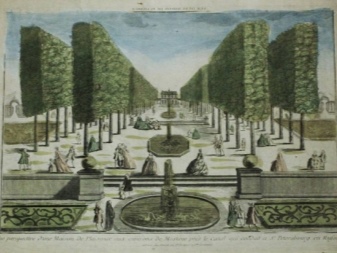
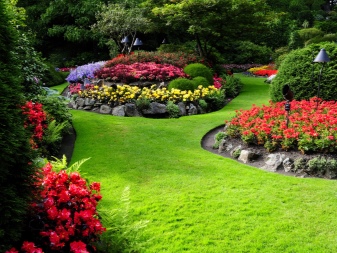
Later, city authorities and people with average incomes became interested in lawns. By the middle of the twentieth century, they had become a full-fledged element of everyday life in almost all states. From a decorative point of view, the benefits of lawns are undeniable. However, with poor-quality care, these decorations of the territory quickly degrade and may lose their appearance. Lawns are also threatened by uncontrolled walking of animals, defects in construction, as well as leaching of soil, its wind erosion or trampling of grass.
Various methods of forming a lawn area have been developed. Most often, seeds of perennial grasses are used for this purpose, which can be planted in the traditional way or by hydroseeding. You can also lay a ready-made roll lawn or bring a cut of soil from another place that immediately contains roots and seeds. It should be noted that lawns are inferior to natural forbs in a number of parameters. For example, because of them, biodiversity is reduced, which is especially noticeable outside the city with a significant amount of crops.
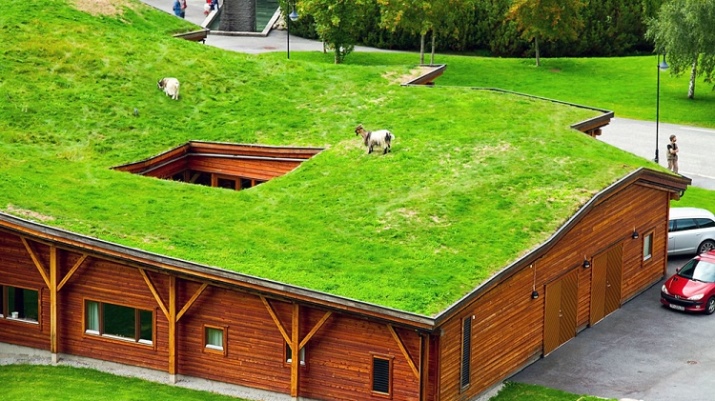
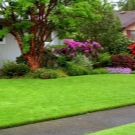
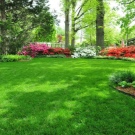

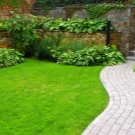
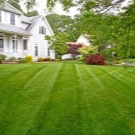
Monoculture plantings can crowd out local species. This also has a negative effect on the animal kingdom. Regular mowing of lawns, cleaning of deciduous litter causes considerable damage to trees. Suppression of natural grasses with herbicides threatens the health of nearby people, and the herbicides themselves can contaminate open water bodies and underground aquifers. It is also worth noting:
- reduced oxygen evolution compared to natural herbs;
- labor intensity and high cost of organizing the sowing and care itself;
- the need to use lawn mowers (noise, gasoline combustion products);
- demanding of most lawn grasses for lighting and moisture, low suitability for shady and dry areas.
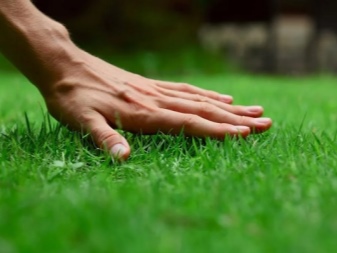
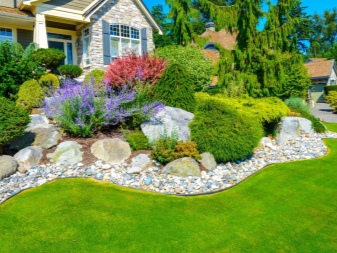
Species overview
Parterre
And yet, even the objective shortcomings of lawn plantings do not mean that they need to be abandoned.On the contrary, it is required to carefully study the features of specific types of such plant decorations. Parterre lawns are considered by many people to be the most decorative option. Their most important task is to decorate and highlight the main parts of the garden, primarily fountains, sculptures and reservoirs. On the parterre lawn, a succulent grass cover of a closed type is invariably formed, growing from the beginning of spring until the arrival of frost.
In this case, the grasses should form a uniform layer. The use of ornamental plants with a long-term development cycle is encouraged, giving thin graceful stems and narrowed leaves, intensively bushy. The aesthetic perfection of the parterre lawn has been appreciated for a long time. It was he who was used in many old estates.
Today, a beautiful parterre lawn is used in memorial parks, in historical city centers, near administrative buildings.
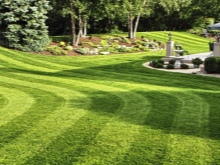
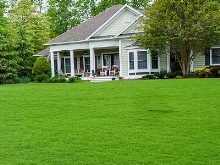
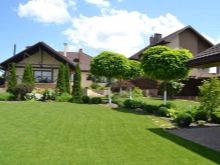
But it is worth noting a number of disadvantages:
- it is impossible to constantly and actively walk on parterre lawns;
- it is quite difficult to care for them;
- the costs of arranging such green corners and maintaining them in order are quite large;
- any mixture for the parterre lawn is slow-growing, and the growth of crops takes too long time;
- it is possible to ensure the same effect as in the ceremonial photos only after careful preparation of the land.
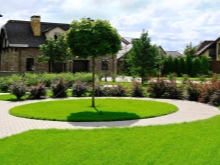
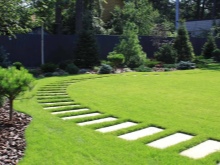
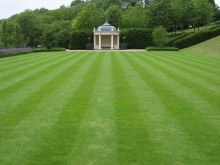
Garden and park
This is what the well-known garden lawns are officially called. It's almost a universal format. It can be found in parks, leisure areas, in summer cottages and on lawns near houses. Sometimes such landings are made even along roads and railways. However, this is no longer entirely true - for such purposes, a different coating is needed. A good garden and park lawn is resistant to mechanical stress. You can safely walk on it, go jogging, play sports or just lie down. Another important requirement is resistance to shade, drought and other negative factors.
The selection of the herbal mixture turns out to be quite difficult. But with skillful work, almost the same aesthetic perfection is achieved as on a parterre lawn.
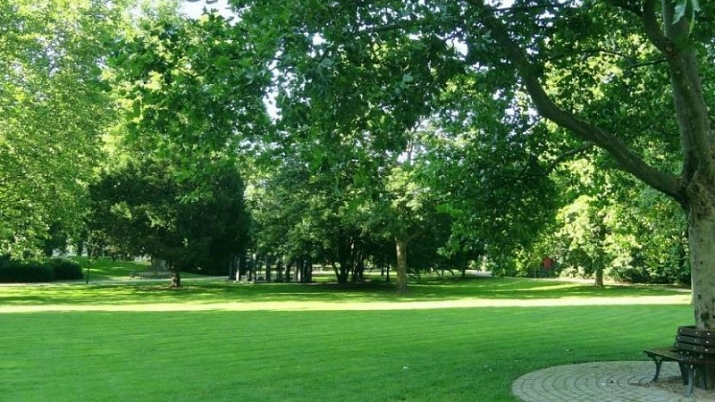
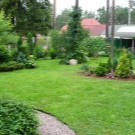
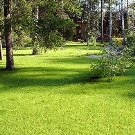
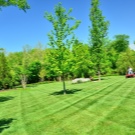
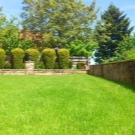
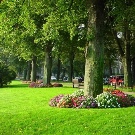
Moorish
In this variant, cereal grasses are used. But flower crops are of primary importance. The Moorish lawn literally attracts pollinating insects. It is also appreciated for its minimal maintenance requirements and an impressive variety of colors. Grass-like grasses dominate quantitatively, ensuring the displacement of weed species.
Of course, there shouldn't be any template scheme. We'll have to select plants according to the specific situation. Characterizing the Moorish lawn in general, it should be emphasized:
- spectacular appearance;
- the ability to limit yourself to a haircut once every 6 months;
- suitability for any courtyards and gardens, their separate areas;
- high demand for moisture (but in a number of modern options this problem is mitigated);
- the fact that along with butterflies, bumblebees, bees, and sometimes even wasps will fly around the site.
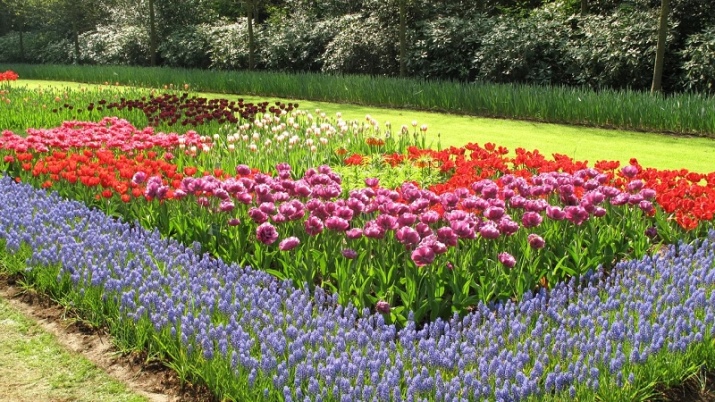
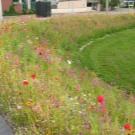
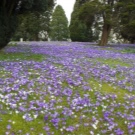
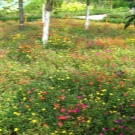
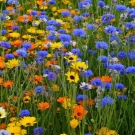
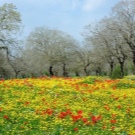
Sports
Obviously, such an area requires grasses that can withstand trampling. But the use of sustainable wild plants has long been abandoned. More often, specially bred varieties with improved properties are used. It should be noted that artificial grounds are usually used for serious sporting events. They are much more stable even under the most unfavorable conditions.
Artificial turf has another advantage - it is quite easy to care for. The composition of the herbs grown must be adapted to the sport to be practiced. Differences also concern the density of disembarkation. For example, on football pitches, it is impractical to have the same concentration of grass over the entire area. It usually reaches its maximum values near the gate, where players act most often and most actively.
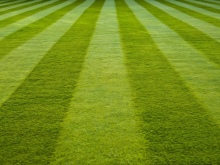
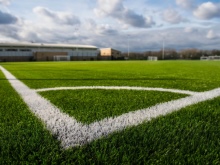
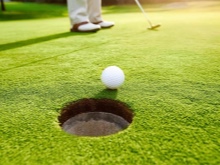
Roll
The special coating in the form of a roll is a completely ready-to-use grass mat. The application is simple and the fastest way to create a grassy area - much faster than even using carefully selected fast growing crops. Advanced bale patterns have well-developed roots, making development easier. Professional agricultural technicians will easily select the exact work schedule and the preparation scheme for the roll lawn. It should be noted that it is universal and can be used for:
- walks;
- sports games;
- physical education;
- sunbathing.
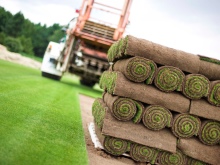
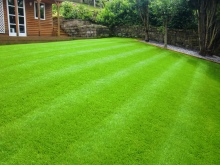
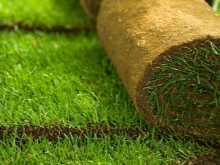
Typical rolling lawns:
- need sun or partial shade (not suitable for deeply shaded areas);
- have a rich green color;
- are distinguished by their velvety and soft surface;
- get through the cold seasons well;
- are created with a consumption of 0.04 kg per 1 m2.
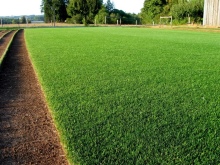
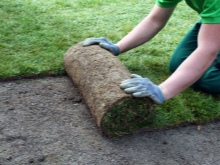
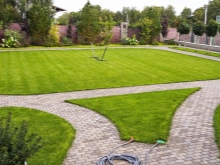
Ordinary
A meadow lawn is usually formed in conjunction with the already present grass stand. Combinations of cereals are sown to it, carefully selecting them according to the cultivation conditions. Meadow lawns are closest to living nature in its original state. The use of natural grass as a basis is most promising not in an urban environment, but in vast suburban areas, sometimes in parks. The fact is that it is very difficult and expensive to form a completely artificial lawn from scratch, and therefore they make a compromise.
In meadow lawns, grasses with a hard stem are used. This type of decorative area can be broken even in areas with low soil fertility. In this case, crops are chosen that give moderate growth. Otherwise, by the middle of summer, all harmony will be broken.
On cultivated meadows, uneven cutting is allowed, and therefore different plant heights.
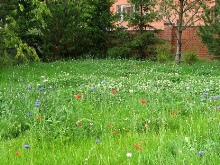
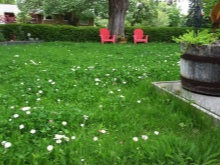
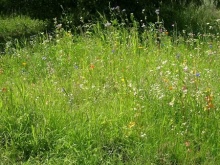
Separately, it should be said about the English lawn, which is often confused with the French regular type. Traditionally, they walked, ran, and even rode on it in England, which shows the impressive stability of the grass layer. This is what they do today. But it is impossible to mechanically transfer such experience into domestic practice - not only the climate interferes, but also the extreme laboriousness of maintaining the grass in order. Even the British themselves have difficulties with this.
In any case, the English lawn is very dense and very low. In addition, it is always made up of a limited range of herbs. You will have to cut the area constantly, otherwise you will not achieve a close convergence. In common cases, the cutting height is 2 cm.For the best sports lawns, it is no more than 1.6 cm.
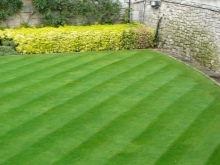
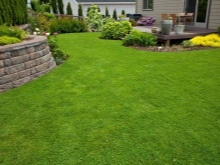
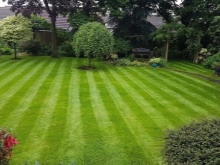
Lawn grass composition
It is very helpful to be guided by feedback on specific plants. But it is equally important to consider which cultures are considered by experts to be the best solution for a particular case. In the middle lane, it is recommended to use ryegrass, fescue, bluegrass and bent grass. The abundance of varieties of these plants in itself makes it possible to form chic grounds. At the same time, they will have a relatively uniform color and will tolerate significant cold weather well.
For garden and park and simple lawns, broad-leaved cereals are mainly used. Fescue and field grass are mixed with them. The use of forest bluegrass, a perennial grass that forms loose soft turf, is encouraged. The bluegrass height varies from 0.3 to 1 m; it is planted mainly at the foot of trees, where the soil is moist and gives an active acidic reaction.
The meadow bluegrass also enjoys a good reputation - also a perennial, rising to 1 m, blooming in June and partly in July.
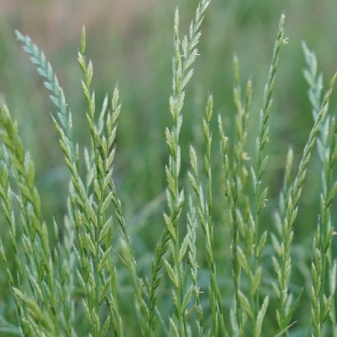
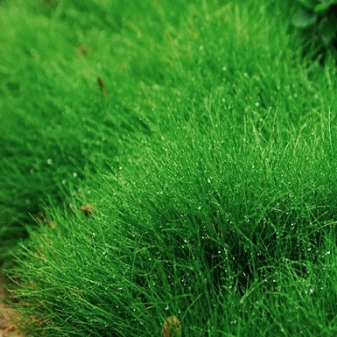
Perennial ryegrass is an attractive solution in many cases. Its leaves are partially pink. The leaves of the foliage are light green in color, the thickness reaches 0.4 cm. In some varieties of ryegrass, the leaves are even narrower. It is characterized by slow growth and excellent resistance to low haircuts.
Varieties are in demand:
- "Taya";
- Figaro;
- Sakini;
- Juventus;
- Danilo.
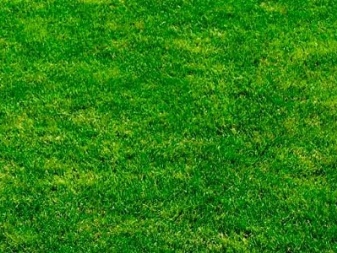
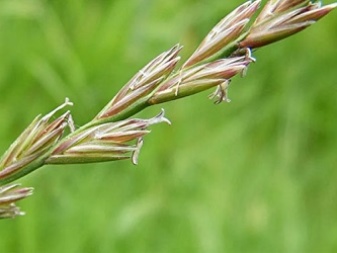
Meadow fescue is also in demand. This perennial herb is good for planting in areas with moderate moisture.When the area is flooded with melt water, fescue can live in this mode for about 30 days without any risk. A characteristic feature of the culture is the presence of narrow, flat foliage. Fescue tolerates trampling well, at the beginning of summer it forms a panicle up to 1.8 cm in size.
Meadow timothy gives a loose bush with swollen stems at the base. The leaves are colored green or gray-green. The plant is suitable as part of a grass mixture for a meadow or garden lawn. Timothy grass is not subject to trampling and grows well on heavy, moist soil. But it is not recommended to cut it short or plant it in sandy soil.
The composition of parterre lawns is somewhat different. When choosing plants for them, they are guided by the uniformity of colors and the ideal leveling of the surface. This goal is best achieved with field grass any kind. At the same time, it is more correct to abandon perennial ryegrass and cereals with wide leaves immediately. Parterre lawns in Russian practice are formed using red fescue and meadow bluegrass.
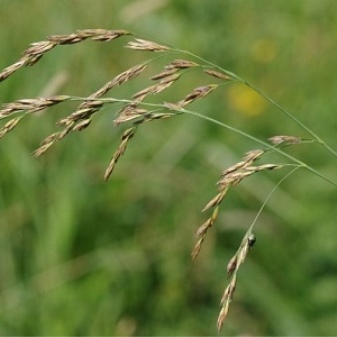
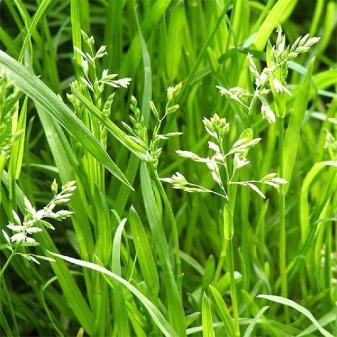
In addition to these crops, you can safely use:
- sheep fescue;
- dog bale;
- thin bent.
As part of meadow lawns, they are widely used:
- soddy pike;
- an unsettled ratchet;
- soft fire;
- awnless rump;
- team hedgehog;
- cranked foxtail.
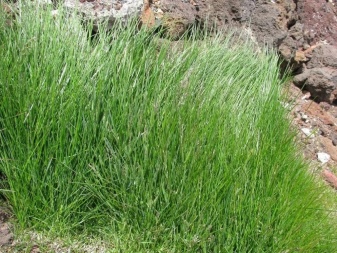
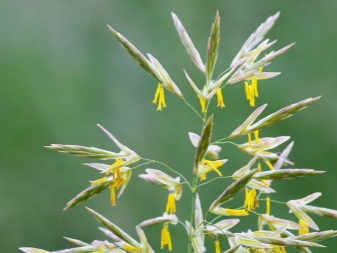
How to choose a lawn?
When choosing a lawn for a summer residence or for another area, it is necessary to take into account the criteria for choosing a grass mixture. It is impossible to focus only on its suitability for a particular type of plantation. Not all herbal combinations are ideal for the Russian climate, especially for areas east of the Urals. In domestic conditions, the most practical lawns from perennial grasses. The use of annuals is too impractical and is a waste of money.
It is recommended to use cereal plants that are best adapted to the harsh climate. But even among them, one should pay attention to:
- resistance to freezing;
- attractive decorative characteristics;
- development of a developed root system;
- quick recovery of the cover after mowing;
- suitability for vegetative propagation.
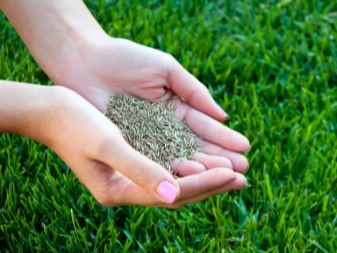
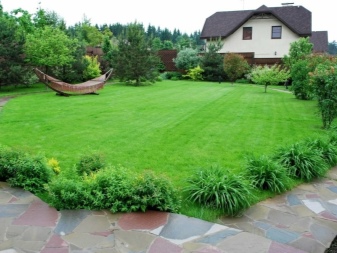
How to sow?
It is best to create a lawn with your own hands in the spring. In this case, the crops have time to take root and adapt before the onset of autumn frosts. If any flaws are made, it will even be possible to reschedule the planting or plant additional plants. It is also important that the saturation of the earth with melt water accelerates the formation of seedlings. But you need to consider:
- daylight hours;
- germination of specific seeds;
- soil quality (its saturation with nutrients).
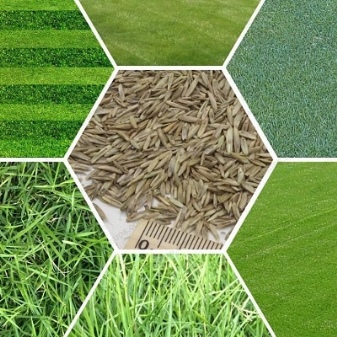
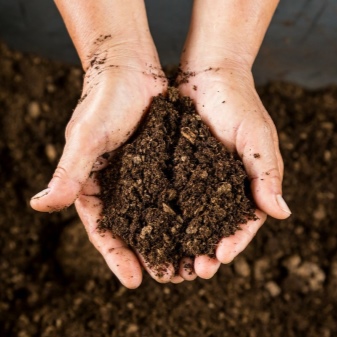
Planting a lawn is also possible before winter. But in this case, accurate calculation and solid experience are required. In particular, it is worth being late and the cold will destroy the entire plan in the bud, literally and figuratively. In summer, droughts are dangerous, which is especially serious in the steppe regions. However, in areas with a harsh climate, there is no choice: there, planting must be done in the summer, be sure to carefully cultivate the soil.
The question often arises: how to compact the ground without a roller and other special tools, without agricultural machinery? Small areas are processed manually, and with special complexity, walk-behind tractors are used. It is still better to perform ramming with a vibrating plate or a roller.
The ramming process is not stopped as long as walking marks remain on the surface. Before sowing, the soil should be loosened.
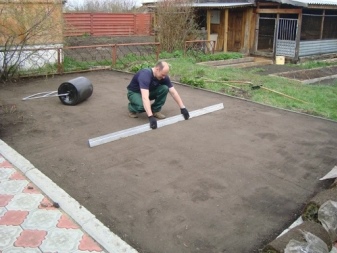
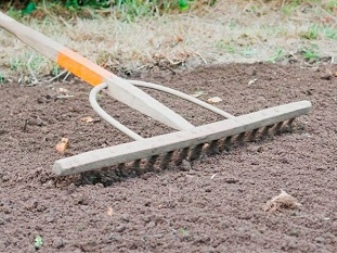
Sowing seeds or planting flowers is best done by hand. On a large plot, mechanized seeders are used. To make it easier to maintain the territory, the lawn is divided into conditional strips with a width of 1.85 m. Seeding after sowing is done with a rake; after compaction, the workpiece is mulched. Making a lawn on clay soil is difficult, but with due diligence, it is quite possible.
The most difficult areas will have to be carefully drained. The pipe angle depends on the overall slope of the terrain.Drains in clay soil should be wrapped in textiles. Improving the quality of the soil is achieved by adding sand and humus mixed with peat soil. It is impossible to do without preliminary plowing.
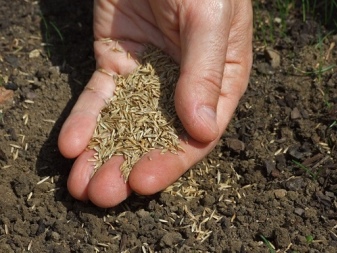
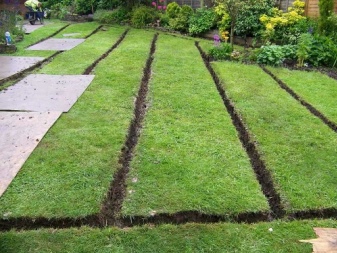
When will it rise and how much will it grow?
How quickly shoots appear after sowing, and how long they will grow, is determined by:
- the specifics of the weather;
- compliance with the rules of care;
- characteristics of a particular species and variety.
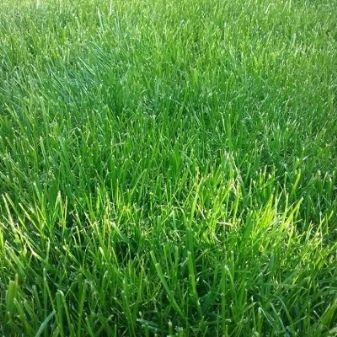
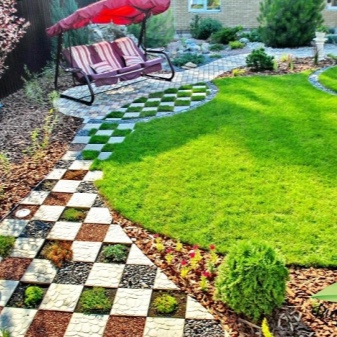
Pasture ryegrass gives early friendly shoots (approximately 7-11 days). Tillering begins 3 weeks after this period. It will take 10 to 14 days to wait for the red fescue sprouts to come out. But in the first year after planting, there will be no gorgeous red carpet - it can be seen only in the third season of development, and full condition is achieved in the fourth year. It is worth considering the displacement of weak shoots (with the formation of "successful" plants of ears in the next season).
Meadow bluegrass actively grows (and becomes aggressive) only in the third year. You will have to wait for shoots at least 14 days. In dry periods - up to 30 days. In the first two years of cultivation, bluegrass looks extremely unattractive. But this plant is unpretentious and frost-resistant.
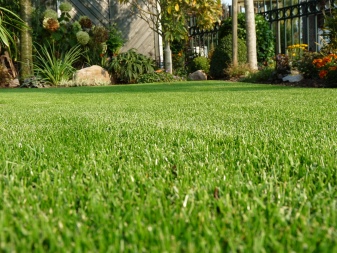
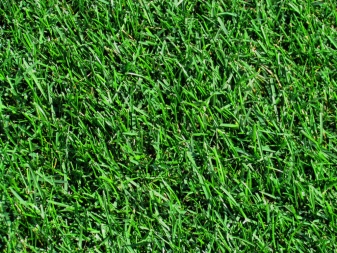
Care secrets
Mowing (developing a lawn design), as well as caring for the perimeter of the plantings, is practically an art. It is from such a moment that the external attractiveness of the land depends first of all. The lawns must be periodically cleaned and repaired. It includes:
- removal of foreign objects;
- leveling the terrain;
- treatment of old plantings from weeds;
- mowing to a height of 2-3 cm;
- scarification.
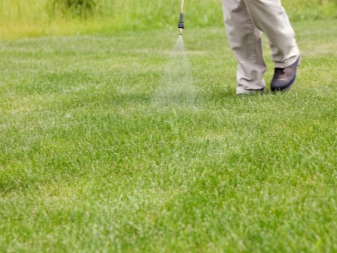
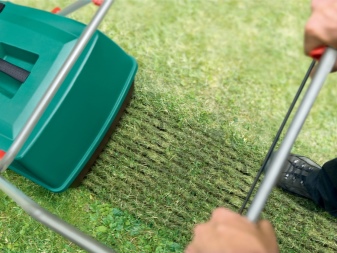
When this is done, and all the garbage is raked and removed, you need to sow the seeds on the empty spaces. The more the area is exposed, the more overseeding is required. Finally, the soil-improving composition (a combination of sand and peat) is evenly distributed. With a strong depletion of the land, this mixture should be put before overseeding and use it a little more.
Re-seeding, like initial seeding, can be done with a seed sprayer. In this case, they immediately stick to the base, will not be carried away by the wind, and pecking by birds is almost completely prevented. The planting mixture contains valuable nutrients.
If possible, mow your home lawn with an electric mower that does not spread toxic combustion products.
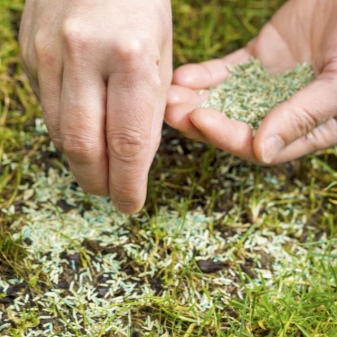
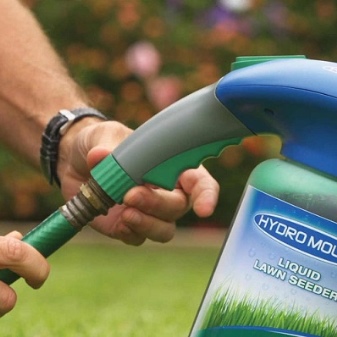
You can also buy a variety of lawn care products:
- verticutters;
- mechanical seeders;
- aerators;
- manual secateurs;
- rollers;
- rollers;
- fertilizer spreaders;
- composters.
In any case, you need to pay a lot of attention to watering, weeding and airing. Professionals even talk about the canonical rule of "three Ps". In the spring, it is better to refrain from watering and rolling in. If possible, fungicide treatments should be postponed until mid-summer. The first laying of autumn fertilizers can be done in August, and in the fall, haircuts are carried out farther, the less often.
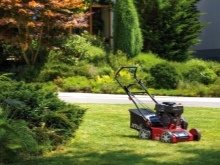
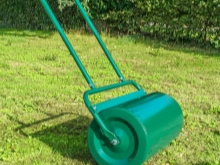
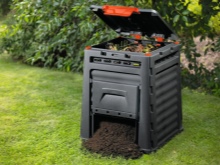
Beautiful examples
One of the best options is deservedly considered the landscape characteristic of an English lawn. This photo shows that its flat and smooth space is perfectly diluted with several vertical groups.
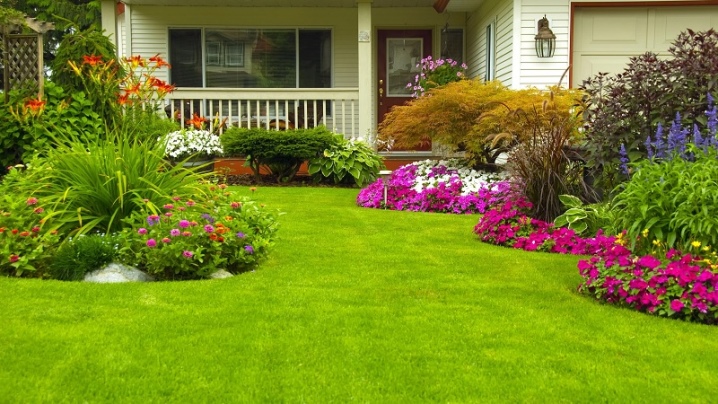
The lawn can also be placed on the roof. On top of a wooden house, it looks very nice and interesting.
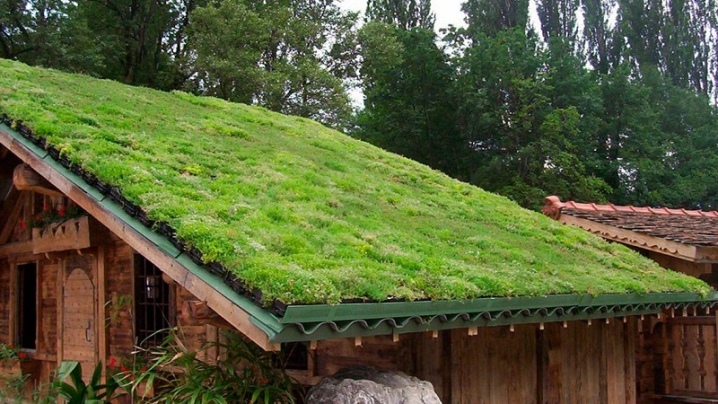
You don't have to use a solid grass carpet - the surface in the form of spots separated by the "ground" looks good too.
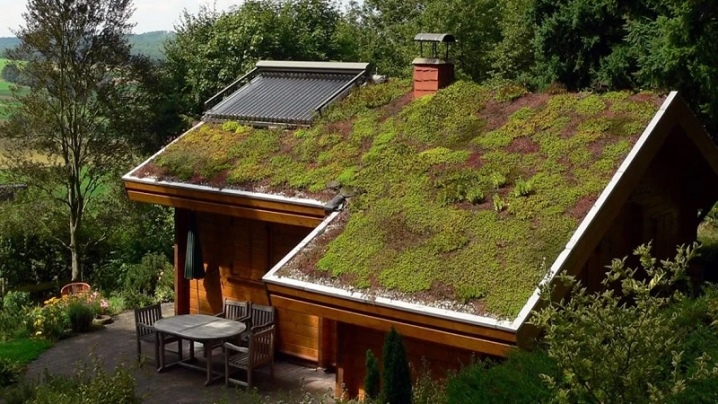
For information on how to sow a lawn correctly, see the next video.



































































I decided to make a lawn in my country house, but did not know who to turn to. And then I came across a rolled lawn, consists of 100% bluegrass. I recommend to everyone!
Three years ago we bought a summer cottage and decided to put a lawn on the site. The choice fell on a roll lawn. I recommend to everyone!
Thank you for the article.
Thanks for the article, very helpful. I decided to do the improvement of the territory in a country house, I want to order a roll lawn.
Thanks for the great article, very helpful. I decided next year to do landscaping in a country house. I would like to lay a roll lawn in my garden on the advice of my parents.
I think that the lawn now is just a necessity, it is he who gives the site a well-groomed, laconic and complete look. I myself recently became the owner of the lawn. I dreamed and thought for many years, but only one day, and I am the mistress of the English lawn! I am pleased.)
Thanks! A very informative article.
Hello everyone. I have heard a lot about the fact that lawns are made of poor quality and seem to be crumpled, but everything looks very beautiful here.
In the country, they laid a lawn with the help of this article. Thanks a lot!
Thanks a lot to the author! Excellent and very helpful article.
A very interesting, including a useful article, the author even refers to GOST, which is very welcome. Author, thanks for the article!
Thank you for the article!
Thank you for the article!
The comment was sent successfully.